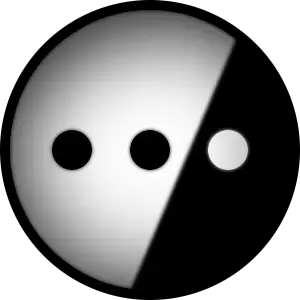- cross-posted to:
- femcelmemes@lemmy.blahaj.zone
- cross-posted to:
- femcelmemes@lemmy.blahaj.zone
deleted by creator
Fair.
But the meme doesn’t imply that whatever is wrong with her is healthy.
I’m fully aware that many of the things I find attractive in a partner are also red flags.
しんじつ。
So I got the left side, あいがとうございました、which is close to “Thank you” but with い instead of り?
I don’t understand that substitution. I must be missing something.
The text on the right, はっら、ざ、ろっく、I have no idea. The は could be ば?
A guess.
wa-ra, za, ro-ku
Laugh, za, six. No idea what “za” is alone.Just a novice Japanese student practicing.
Correct me せんぱい。
It says
Bocchi za rokku Arigatou gozaimashita!
Bocchi za rokku is the name of the series (Bocchi the rock)
And the ri/i thing is just a handwriting thing. You can tell it’s meant to be ri because the right side is much longer than left side
Edit: also, warra wouldn’t be translated as laugh. The stem of verbs can’t stand on their own. You will only see warau (laugh) as warai, waratte, warayou, etc., but never as just wara. It also wouldn’t really make sense to make wara into warra. Some people will add the tsu to emphasize certain syllables, but in this case, it would just end up sounding weird and unnatural. And plus there’s no real reason to emphasize syllables in this case
Thank you! Helpful!
ぼっち ざ ろっく
ち rather than ら And double consonant on rokku
Bocchi za rokku
Which apparently gets anglicized as Bocchi the Rock, the title of a manga.
Not sure what the deal is with あいがとう instead of ありがとうthough. Unless it’s a form of thank you I haven’t encountered or just a typo.
Thank you!
It’s り not い
Compare the lengths of the right-hand stroke between the り in ありがとう and the い in ございました Edit: Another commenter already said much the same thing further down. My bad.
It’s helpful to get it from two sources, your effort is greatly appreciated.
ありがとうせんせい!




